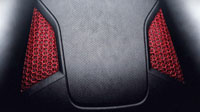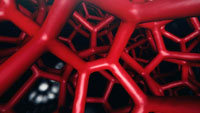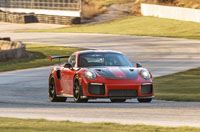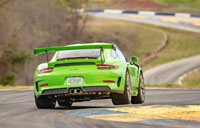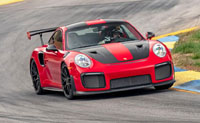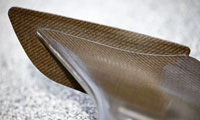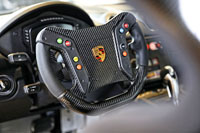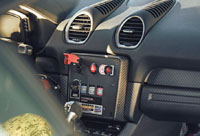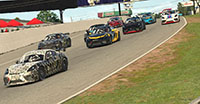
Are esports really sports? They certainly require focus, stamina and a lot of hand-eye coordination, plus in the case of e-motorsports, foot coordination too, but most serious sports fans would probably rank them beside video games, which in fact they are. Still, esports are incredibly popular, which means that automakers would be missing out on a great opportunity to connect with their fans, especially automakers already involved in motorsports.
Porsche has a long history in motorsports, competing soon after the engineering company was founded in 1931. In fact, the car most historians credit as the first Porsche, the Type 64, which was based on the Volkswagen Beetle that Ferdinand Porsche designed, housing a 50-horsepower flat-four mounted in the rear, was solely meant for racing. That car was set to be entered in a Berlin to Rome race scheduled for September 1939, but for reasons you can probably guess the event was cancelled, and thus the car never saw the track until a restored example, brought back to life by the one and only Battista Farina of Pininfarina fame in 1947, went on to win the Alpine Rally in 1950 when driven by then-owner and Austrian motorcycle racer Otto Mathé. By then the new Porsche 356 was already in production and within a year was taking class victories, the first at the 1951 Le Mans 24 Hours.
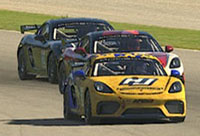
Fast forward through countless contests and numerous championships to the point that Porsche became the winningest brand at the annual Le Mans 24 Hours weekend, its 919 hybrid having become the circuit’s overall winner for three consecutive years from 2015 through 2017. Porsche contests many other sports car categories too, plus the performance brand is now deeply involved in Formula E, the FIA-sanctioned 100-percent electric racing series.
History’s race drivers would have benefited greatly from modern-day race simulators, or for that matter regular gaming consoles that racing fans use every day from the comfort of their homes. As it was this year, due to our health crisis professional drivers spent the first half of the year racing each other digitally, while Porsche Canada witnessed this trend and made it possible for fans to race each other in the same way via the Porsche Esports Sprint Challenge Canada one-make virtual race series.
Launched last May in concert with online games company iRacing.com, which is best known for its “Grand Prix Legends” and NASCAR 2003” games, the Esports Sprint Challenge Canada series pitted 30 virtual drivers at the wheel of one 718 Cayman GT4 Clubsport car apiece, resulting in Lindsay, Ontario’s Brandon Hawkin winning every single race.
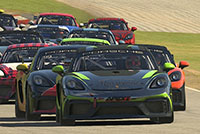
“The series was organized very professionally and it was a pleasure to race with everyone – what a fantastic experience,” said Hawkin. “It will be extremely memorable based on how competitive the series was with lots of track battles.”
While the series trophy would have probably been enough of an award, Hawkin was also given the opportunity to join Porsche Canada on the track for the Porsche Experience program, an opportunity of a lifetime for any performance car fan.
“Driving a Porsche on track is something I’ve wanted to do since I was a child,” continued Hawkin. “I’m so excited and thankful that I’ll now get that chance and join the Porsche Track Experience program!”
The series runner up was William Levesque, while Giovanni Romano took third. Both will receive consolation prizes along with the other 27 contestants, plus iRacing threw in some online game credits allowing those at the back of the pack to hone their skills.
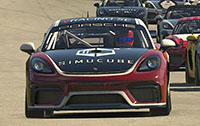
“It was incredible to see the group of talented sim racers we have across Canada push each other in the virtual racing world,” said Marc Ouayoun, President and CEO, Porsche Cars Canada, Ltd. “Congratulations to all the competitors, especially to Brandon Hawkin, as he will have the chance to bring his skill sets to life at Porsche Track Experience in the very near future.”
To learn more about the 718 Cayman GT4 Clubsport, check out our 2020 Porsche 718 Cayman Canada Prices page that shows Porsche factory leasing and financing rates from zero-percent. CarCostCanada provides members with rebate info and dealer invoice pricing too, both capable of saving you thousands during negotiations, while you can also download the free CarCostCanada app from the Google Store or Apple Store, allowing you to have all of our money-saving info at your fingertips when you need it most, at the dealership.
Story credits: Trevor Hofmann
Photo credits: Porsche


